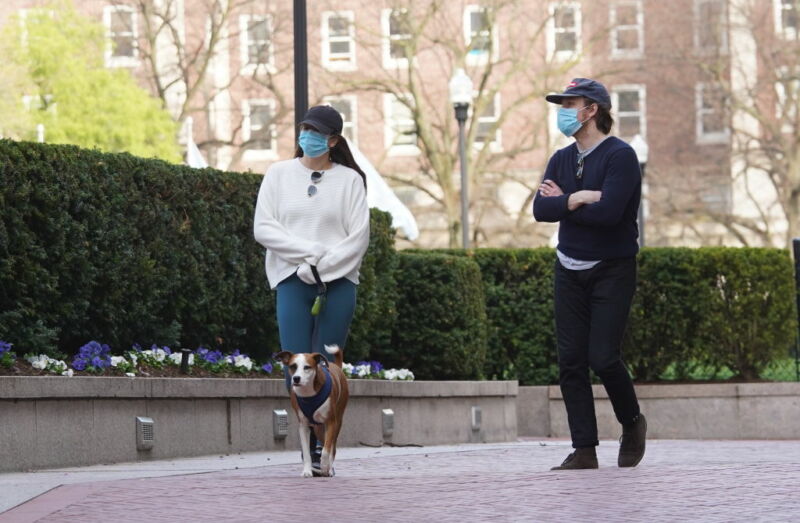
Enlarge / Face masks may be a regular feature in our near-term future. (credit: Rob Kim/Getty Images)
Most of the optimistic ideas about what to do about SARS-CoV-2 involve engineering the virus' extinction. We could ramp up testing and isolate anyone who's been in contact with an infected individual. We could carefully manage infections to build up herd immunity without exceeding our hospital capacity. Or, in an ideal world, we could develop herd immunity using an effective vaccine.
Unfortunately, there are reasons to be worried that none of these will work. Tracing the contacts of infected individuals may be impossible with a virus that spreads as easily as SARS-CoV-2. And some of the virus' closest relatives don't build up the long-lasting immune response that's needed for persistent herd immunity. All of which raises a disturbing question: what happens then?
A group of Harvard epidemiologists attempted to answer the question by trying out models that tested the impacts of different assumptions about the virus' behavior and the immune system's response to it. The researchers find that there's a risk that it could become a seasonal menace, and we might have to be socially isolating every winter.
No comments:
Post a Comment